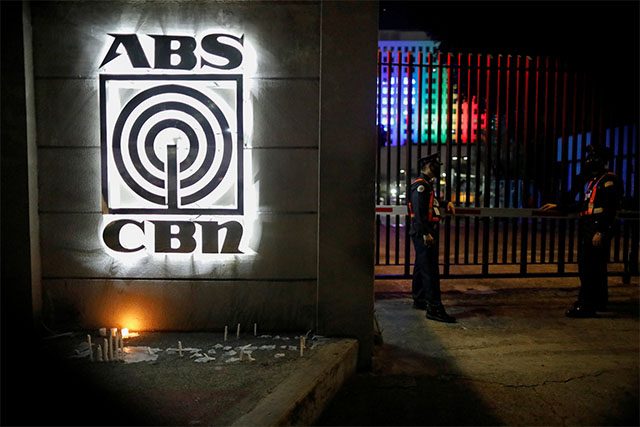
MANILA — The Philippines‘ top broadcaster ABS-CBN Corp was ordered to stop transmitting satellite and digital television on Tuesday just weeks after its free TV and radio operations were halted, adding to worries over press freedom.
The 66-year-old broadcaster had been at odds with President Rodrigo Duterte since his campaign for election in 2016, and its main licence was not renewed when it expired in May.
The government’s National Telecommunications Commission (NTC) instructed Sky Cable Corp, an ABS-CBN subsidiary and the largest cable company in the country, to “immediately cease and desist” its direct-to-home satellite transmission on Tuesday.
NTC also directed the broadcaster to stop airing digital television.
According to its chief executive, ABS-CBN reaches 11 million homes or some 55 million people, roughly half the population.
It said it hoped a petition with the Supreme Court over its licence would soon be resolved in its favour. It can still broadcast on social media.
The National Union of Journalists of the Philippines said Tuesday’s order deprived millions more Filipinos of their right to choose how they receive news and entertainment.
“It is clear that the end goal of this administration is not only to shut down ABS-CBN, but to send a message throughout the media industry that other news organizations may face the same fate unless they surrender their watchdog role,” it said in a statement.
That is to provide “the critical and independent reportage that is an essential part of the media’s mission”, it said.
Duterte’s spokesman Harry Roque did not respond to a request for comment. The government has previously said it believes in free speech, and that ABS-CBN’s problems are legal not political.
However, Duterte had warned it in the past that he would not allow the renewal of its franchise.
The bad relationship stems from the broadcaster’s failure to air some of Duterte’s paid election campaign commercials. The company apologized recently.
Concerns over press freedom increased this month after a court convicted veteran journalist Maria Ressa of libel. She faces up to six years in jail.
Duterte, a populist, has waged a war on drugs that has left thousands dead and he recently renewed a threat to kill drug dealers, despite condemnation in a U.N. report.
He is soon expected to sign an anti-terrorism law his opponents fear could target them, but which he says is needed to fight extremism. —Reporting by Neil Jerome Morales; fEditing by Matthew Tostevin and Jan Harvey









